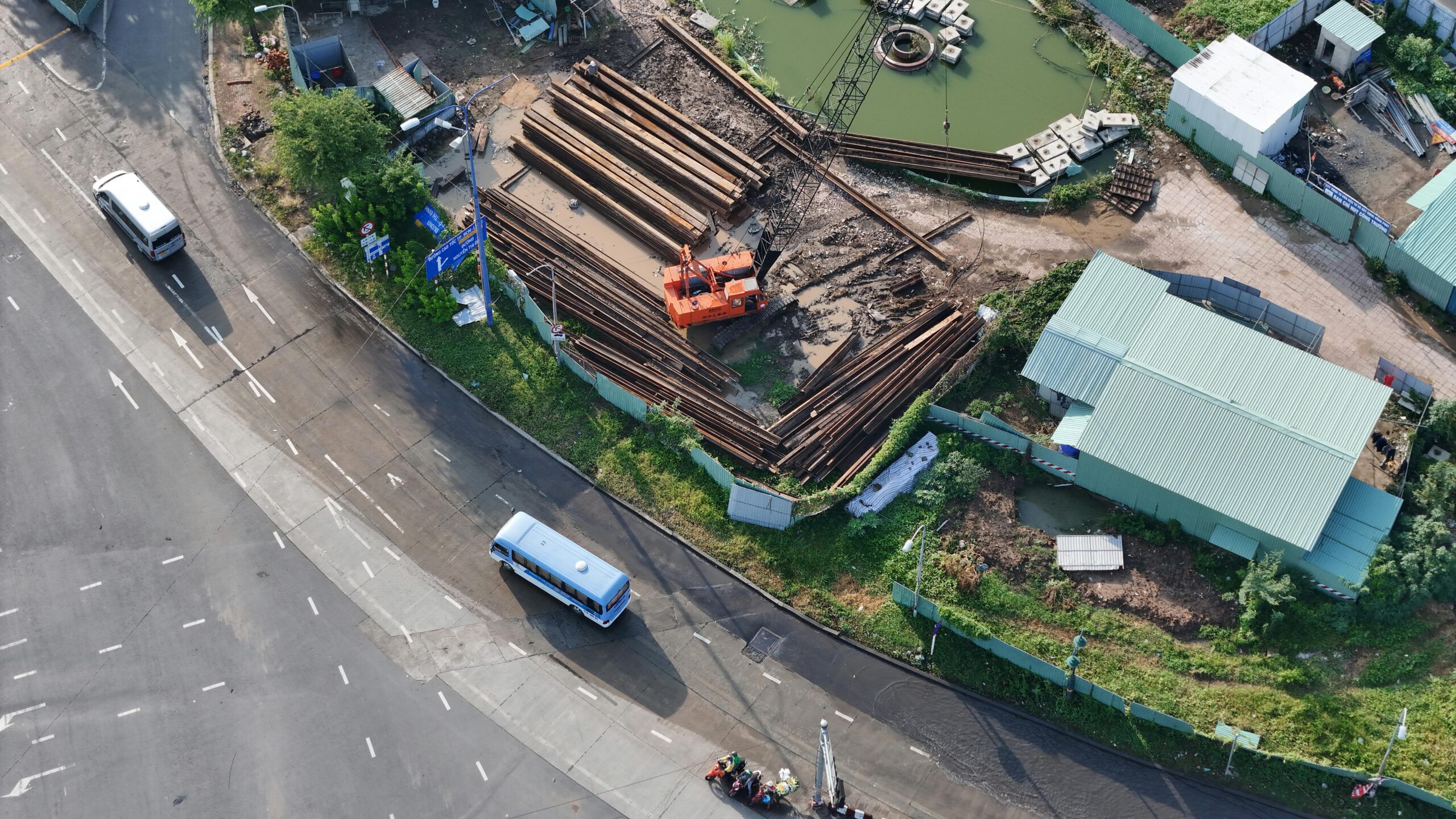Urban agriculture is emerging as a transformative solution to address food insecurity, climate change, and sustainability challenges facing modern cities worldwide.
As global populations continue to concentrate in urban areas, with projections indicating that nearly 70% of humanity will live in cities by 2050, the need for innovative approaches to food production has never been more critical. Traditional agricultural systems, often located far from consumption centers, face mounting pressures from climate variability, resource depletion, and supply chain vulnerabilities. Urban agriculture presents a compelling alternative, bringing food production directly into the heart of cities and creating resilient, sustainable food security systems that can withstand future challenges.
🌱 Understanding Urban Agriculture’s Role in Modern Food Systems
Urban agriculture encompasses a diverse range of food production activities within metropolitan areas, from rooftop gardens and vertical farms to community plots and hydroponics systems. This practice represents more than simply growing vegetables in city spaces; it fundamentally reimagines the relationship between urban populations and their food sources. By shortening supply chains and reducing transportation distances, urban agriculture addresses multiple sustainability objectives simultaneously.
The concept extends beyond traditional farming techniques, incorporating cutting-edge technologies like aquaponics, aeroponics, and controlled-environment agriculture. These innovative methods maximize productivity per square meter while minimizing resource consumption, making them particularly suitable for space-constrained urban environments. Cities worldwide are recognizing that integrating food production into urban planning creates opportunities for environmental regeneration, economic development, and social cohesion.
The Environmental Benefits That Matter Most
Urban farming significantly reduces the carbon footprint associated with food production and distribution. Traditional agriculture requires extensive transportation networks to move products from rural farms to urban consumers, generating substantial greenhouse gas emissions. Local food production eliminates these “food miles,” cutting emissions while ensuring fresher, more nutritious produce reaches consumers.
Additionally, urban agriculture contributes to improved air quality, stormwater management, and urban heat island mitigation. Green spaces created through agricultural activities absorb carbon dioxide, filter pollutants, and provide cooling effects in densely built environments. These ecosystem services deliver measurable benefits to urban residents while addressing broader climate adaptation needs.
🏙️ Transforming Urban Spaces into Productive Landscapes
Cities contain numerous underutilized spaces that can be converted into productive agricultural areas. Rooftops, vacant lots, abandoned industrial sites, and even vertical surfaces offer opportunities for cultivation. Forward-thinking municipalities are incorporating agricultural zoning into urban planning frameworks, recognizing food production as essential infrastructure rather than merely recreational activity.
Detroit provides a compelling example of urban transformation through agriculture. Following decades of population decline and industrial abandonment, the city has embraced urban farming as a revitalization strategy. Hundreds of community gardens and commercial farms now occupy formerly vacant properties, producing fresh food while rebuilding neighborhood cohesion and economic vitality.
Vertical Farming: Maximizing Limited Space
Vertical farming represents perhaps the most technologically advanced approach to urban agriculture. These facilities stack growing layers vertically, using controlled environments with LED lighting, precise nutrient delivery, and optimized climate conditions. While energy-intensive, vertical farms achieve yields per square meter that far exceed traditional agriculture, making them economically viable in high-value urban real estate markets.
Singapore, a land-scarce city-state, has invested heavily in vertical farming technology to enhance food security. The government supports commercial vertical farms that now produce significant portions of the nation’s leafy greens, reducing reliance on imports while creating high-tech agricultural employment opportunities.
💧 Water Wisdom: Sustainable Resource Management
Water scarcity presents a critical challenge for urban food systems, making efficient water use essential for sustainable urban agriculture. Modern cultivation techniques dramatically reduce water consumption compared to conventional farming. Hydroponics systems recirculate nutrient solutions, using up to 90% less water than soil-based agriculture. Similarly, drip irrigation and moisture sensors optimize water delivery, eliminating waste.
Urban farmers are also pioneering rainwater harvesting and greywater recycling systems that reduce pressure on municipal water supplies. These closed-loop approaches align agricultural water needs with broader urban water conservation objectives, demonstrating that food production can complement rather than compete with residential and commercial water demands.
Nutrient Cycling and Organic Waste Management
Urban agriculture creates opportunities for circular economy approaches to organic waste management. Food scraps, yard waste, and other organic materials that would otherwise burden landfills can be composted and returned to urban farms as soil amendments. This closes nutrient loops, reduces waste disposal costs, and creates valuable growing media from materials previously considered worthless.
Several cities have established municipal composting programs linked to urban agriculture initiatives. San Francisco diverts significant organic waste from landfills through citywide composting, with finished compost available to urban farmers and community gardens. This integrated approach addresses multiple sustainability objectives while strengthening urban food systems.
🍅 Food Security Through Local Production
Food security exists when all people consistently have physical and economic access to sufficient, safe, and nutritious food. Urban agriculture directly addresses each component of this definition. By producing food locally, cities reduce vulnerability to supply chain disruptions, price volatility, and import dependencies that threaten food security.
The COVID-19 pandemic starkly illustrated the fragility of globalized food systems. Supply chain disruptions, border closures, and labor shortages created temporary but significant food access challenges. Communities with established urban agriculture programs demonstrated greater resilience, maintaining local food supplies when conventional channels faltered. This experience has accelerated policy interest in building distributed, localized food production capacity.
Addressing Food Deserts Through Urban Gardens
Food deserts—urban areas where residents lack access to affordable, nutritious food—represent a significant equity challenge in many cities. Urban agriculture offers practical solutions by establishing production sites directly within underserved neighborhoods. Community gardens and small-scale urban farms provide fresh produce in areas where supermarkets are scarce, improving nutrition access for vulnerable populations.
These initiatives often incorporate social programming that extends beyond food production, including nutrition education, cooking classes, and youth engagement activities. By addressing both food access and food literacy, urban agriculture creates pathways toward improved community health outcomes and reduced diet-related diseases.
👥 Building Community Resilience and Social Capital
Beyond producing food, urban agriculture cultivates social connections and community empowerment. Community gardens serve as gathering spaces where diverse neighbors collaborate toward common goals, strengthening social networks that enhance community resilience. These relationships prove invaluable during crises, creating mutual support systems that extend beyond agricultural activities.
Research consistently demonstrates that participation in community gardening correlates with improved mental health, reduced stress, and enhanced life satisfaction. The physical activity, connection to nature, and sense of purpose associated with urban farming contribute to holistic well-being for participants, addressing urban health challenges that extend beyond nutrition.
Economic Opportunities in Urban Agriculture
Urban farming creates diverse economic opportunities, from small-scale entrepreneurship to high-tech employment. Community-supported agriculture programs, farmers markets, and direct-to-consumer sales channels enable urban farmers to generate income while strengthening local food economies. Additionally, the knowledge-intensive nature of modern urban agriculture creates demand for skilled workers in areas like hydroponics management, agricultural technology, and sustainable food systems.
Many urban agriculture initiatives intentionally focus on economic empowerment for marginalized communities. Training programs prepare individuals for agricultural careers while addressing barriers to employment. These social enterprises demonstrate that urban farming can simultaneously advance environmental sustainability, food security, and economic justice objectives.
🔬 Technology and Innovation Driving Urban Agriculture Forward
Technological advancement continues expanding the possibilities for urban food production. Sensors, automation, artificial intelligence, and data analytics optimize growing conditions, reduce labor requirements, and maximize yields. These innovations make urban agriculture increasingly competitive with conventional farming while reducing environmental impacts.
Internet-of-Things devices monitor soil moisture, nutrient levels, and environmental conditions in real-time, enabling precise interventions that optimize plant health. Machine learning algorithms analyze growth patterns and predict optimal harvesting times, reducing waste and ensuring peak quality. As these technologies become more accessible and affordable, they empower urban farmers of all scales to achieve professional results.
Integrating Renewable Energy Systems
Energy consumption represents a significant consideration for intensive urban agriculture, particularly vertical farming and controlled-environment operations. Integrating renewable energy sources like solar panels addresses this challenge while advancing overall sustainability objectives. Some innovative projects combine agricultural production with energy generation, installing photovoltaic systems that both power operations and generate surplus electricity for the grid.
These integrated systems demonstrate how urban agriculture can contribute to multiple sustainability goals simultaneously, producing food while advancing renewable energy deployment and climate mitigation objectives.
📋 Policy Frameworks Supporting Urban Agriculture Development
Effective policy frameworks prove essential for scaling urban agriculture from isolated projects to systemic food system transformation. Progressive cities are revising zoning codes, building regulations, and land use policies to accommodate and encourage agricultural activities. These policy innovations remove barriers while establishing standards that ensure food safety and environmental protection.
Key policy mechanisms include:
- Zoning amendments permitting agricultural use in residential and commercial districts
- Tax incentives for property owners who establish or lease land for farming
- Streamlined permitting processes for urban agriculture projects
- Public land programs making municipal property available for cultivation
- Procurement policies prioritizing locally-grown food in institutional settings
- Investment in agricultural infrastructure like water access and composting facilities
Toronto’s comprehensive urban agriculture policy framework exemplifies this approach, incorporating food production considerations across multiple municipal departments and creating coordinated support systems for urban farmers.
🌍 Learning From Global Urban Agriculture Leaders
Cities worldwide offer valuable lessons in implementing successful urban agriculture programs. Havana, Cuba, developed extensive urban farming systems during economic isolation, eventually producing significant portions of the city’s vegetables through organoponics and other intensive methods. This necessity-driven innovation created models that other cities now study and adapt.
In Asia, cities like Tokyo and Seoul have long traditions of integrating agriculture into urban landscapes. Japan’s rooftop gardens and community plots demonstrate how high-density cities can maintain agricultural connections despite severe space constraints. Meanwhile, Seoul’s urban farming initiatives combine traditional practices with modern technology, creating hybrid systems that honor cultural heritage while embracing innovation.
African Cities Pioneering Urban Agriculture
Many African cities are emerging as urban agriculture innovators, driven by rapid urbanization and food security challenges. Nairobi supports thousands of urban farmers producing vegetables, keeping livestock, and practicing aquaculture within city boundaries. These activities contribute significantly to urban food supplies while generating income for low-income residents. Policy support and training programs help formalize and expand these practices, demonstrating pathways applicable to other rapidly urbanizing regions.
🚀 Scaling Urban Agriculture for Maximum Impact
Transitioning urban agriculture from niche practice to mainstream food system component requires strategic scaling. This involves not only expanding the physical area under cultivation but also building supporting infrastructure, developing supply chains, and creating market connections that enable urban farmers to operate sustainably.
Successful scaling strategies balance grassroots community initiatives with commercial operations, recognizing that both contribute essential value. Community gardens build social capital and food access, while commercial urban farms demonstrate economic viability and produce volumes that can supply institutional buyers. Integrating these approaches creates robust, diversified urban food systems.
Education and Knowledge Sharing
Building human capital through education and training programs proves critical for urban agriculture expansion. Formal agricultural education traditionally focuses on rural, large-scale farming, leaving knowledge gaps for urban practitioners. Universities, extension programs, and community organizations are developing specialized curricula addressing urban-specific challenges like intensive cultivation techniques, small-space production, and direct marketing.
Digital platforms facilitate knowledge exchange among urban farmers worldwide, accelerating learning and innovation diffusion. Online communities, video tutorials, and virtual workshops democratize access to agricultural expertise, enabling individuals without formal training to successfully establish productive urban farms.

🌟 Creating Your Urban Agriculture Future
The transformation of cities through urban agriculture represents an ongoing evolution rather than a fixed destination. As climate pressures intensify, populations grow, and sustainability imperatives become more urgent, urban food production will continue gaining importance within comprehensive resilience strategies. The most successful cities will be those that proactively integrate agriculture into urban planning, invest in supporting infrastructure, and cultivate diverse stakeholder engagement.
Individual actions matter profoundly in this transformation. Whether starting a balcony garden, participating in community agriculture programs, supporting local urban farmers through purchasing decisions, or advocating for supportive policies, everyone can contribute to building more resilient and sustainable urban food systems. The aggregation of these individual efforts creates the momentum for systemic change.
Urban agriculture offers no silver bullet solution to complex food system challenges, but it provides essential tools for building resilience, enhancing sustainability, and ensuring food security in an urbanizing world. By reconnecting cities with food production, we create opportunities for environmental regeneration, community empowerment, and economic innovation. The future we grow in our cities today will determine the resilience and sustainability of urban life for generations to come.
As we face interconnected challenges of climate change, resource scarcity, and social inequality, urban agriculture emerges as a practical pathway toward solutions. The transformation requires vision, investment, and commitment from diverse stakeholders, but the benefits—environmental, social, and economic—justify the effort. Cities that embrace this transformation position themselves as leaders in creating livable, sustainable, and resilient urban futures where food security is not merely an aspiration but a lived reality for all residents.
Toni Santos is a financial storyteller and blockchain researcher exploring how digital economies transform trust, governance, and creativity. Through his work, Toni studies the evolution of money — from tangible systems to algorithmic value — and how technology reshapes the ethics of exchange. Fascinated by decentralized networks and the philosophy of finance, he analyzes how human decisions interact with algorithms, regulation, and cultural behavior in digital markets. Combining economic theory, data analysis, and narrative insight, Toni translates the complexity of blockchain and decentralized finance into accessible reflections on innovation and responsibility. His work is a tribute to: The pursuit of transparency in financial innovation The creative potential of blockchain ecosystems The shared responsibility of shaping ethical digital economies Whether you are passionate about crypto assets, decentralized finance, or the future of regulation, Toni invites you to explore the intersections of trust, technology, and transformation.




